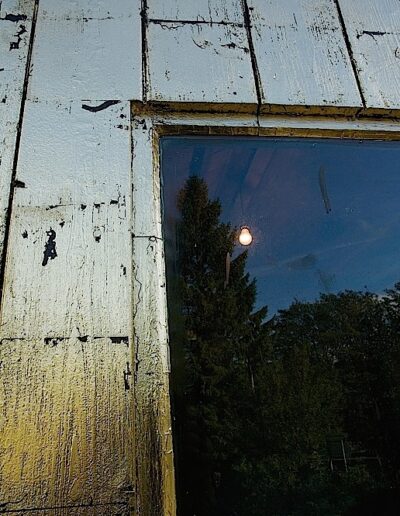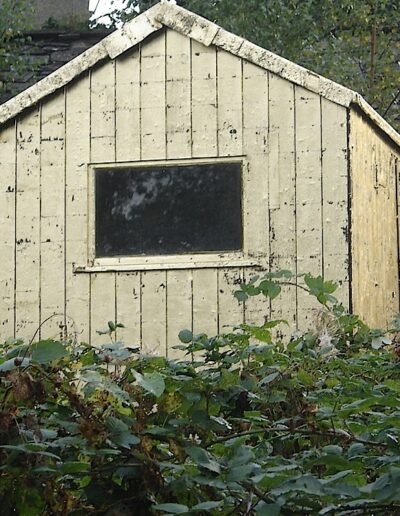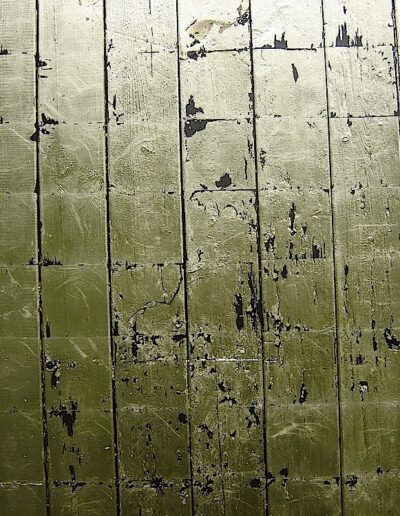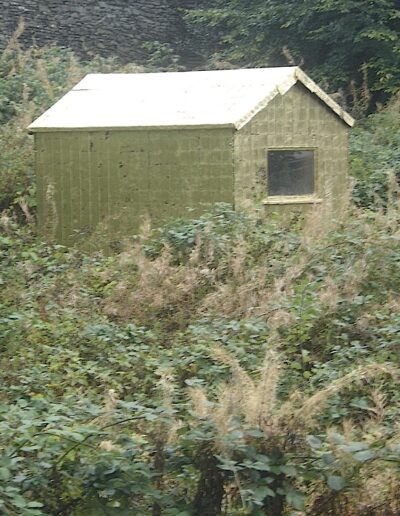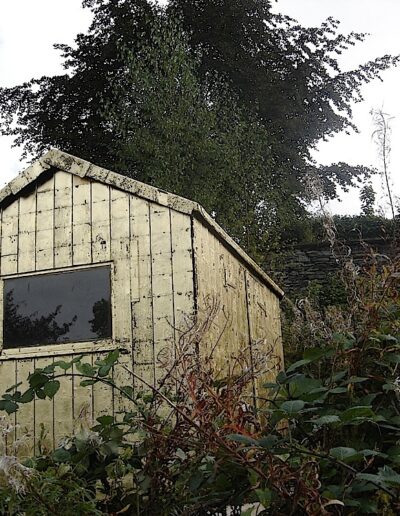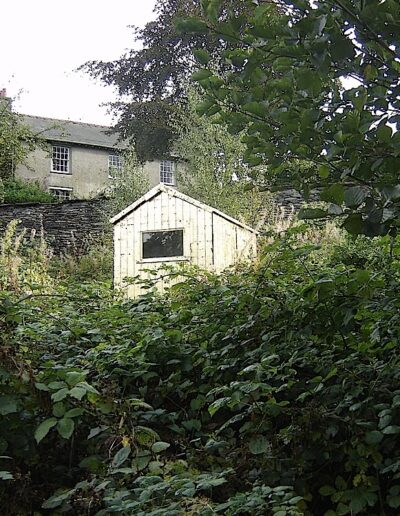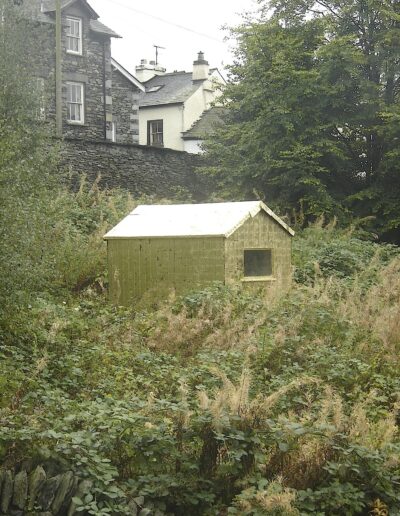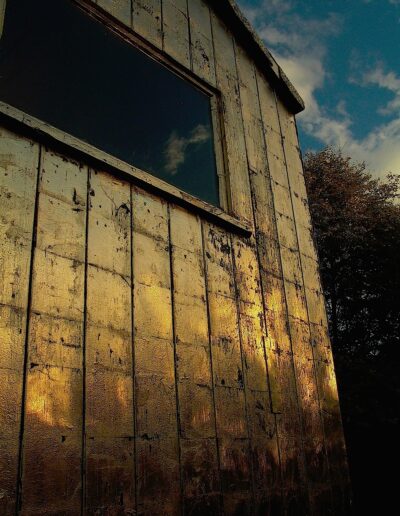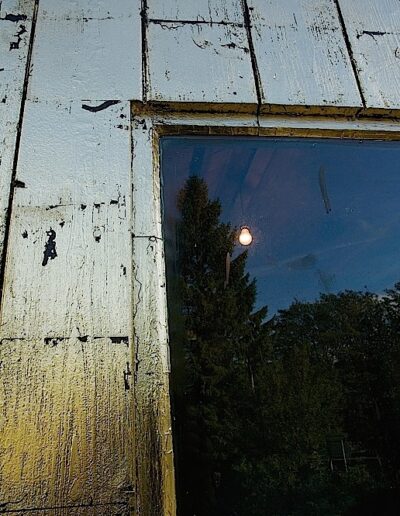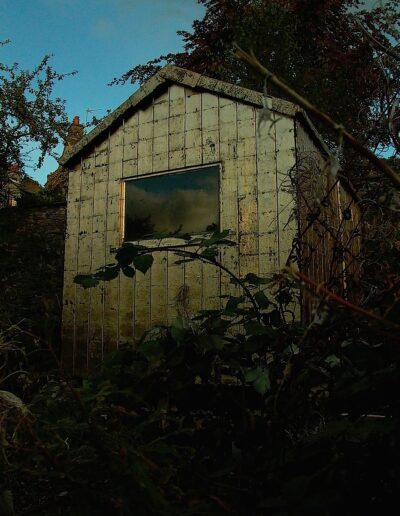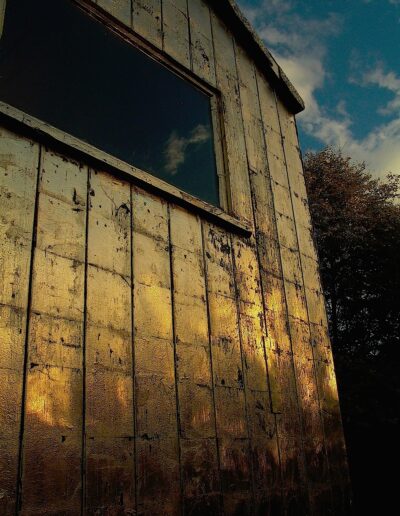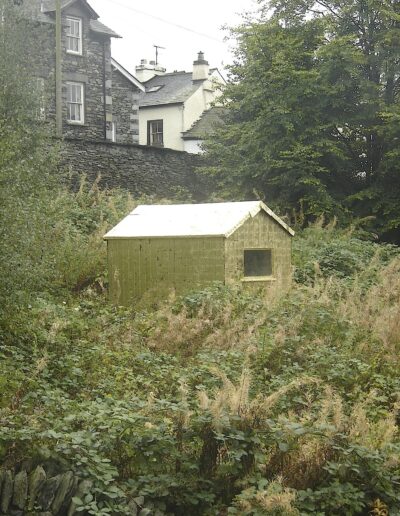Installation/intervention by Russell Mills and Ian Walton
University College Saint Martin’s campus grounds (now the University of Cumbria), Ambleside, for the FRED Art invasion of Cumbria
Custom-built, gold leaf-clad garden shed, 100w light bulb set on timer
Set on the former site of Ambleside allotments, now overgrown with shrubs, brambles and bushes, is an old garden shed its exterior clad entirely in gold leaf. Through its one window a bare bulb randomly lights up.
Part oblique homage to Kurt Schwitters, who lived his last years in Ambleside, Head represents a particular breed of independent, visionary and creative thinkers. Following the legacy of Schwitters’ pioneering works made from society’s detritus and his belief in the total work of art, Head alludes to the importance of collage in our contemporary media landscape, as concept and as construct.
Shed for a head: it is of the possible. Essentially improvisational and eccentric, the shed represents the marginal and the maverick. The archetypal English retreat, a meditative space, the shed is also laboratory of the resourceful and home to innovators who pursue ideals, usually despite overwhelming scepticism. As humble and practical architecture in which dreams are dreamt and made real, the shed has become an icon of sustainability. Strange and intriguingly magnetic, romantic and yet practical, the shed is symbolic of hope, defiance and resilience.
Shed: part with, let fall off (tree sheds leaves, stag sheds horns, snake sheds skin, bather sheds clothes); reduce (electrical powerload by disconnection etc.; drop (- tears, weep; – one’s blood, be wounded or killed for one’s country etc.; cause (blood) to flow by injury; dispense, diffuse, spread.
Shed: one-storeyed building for storing goods or vehicles or keeping cattle etc., or for use as workshop etc., and consisting of roof with some or all or no sides open.
Shed: English has two distinct words shed. The verb (OE) originally meant ‘divide, separate, split’; a 14th century religious poem paraphrased Genesis with ‘the sun to shed the day from the night’; and the modern range of senses, ‘give off, drop’, did not begin to emerge until the Middle English period. It goes back to a prehistoric Germanic skiathan, which produced German and Dutch stained ‘separate’. This was derived from the base skaith– ‘divide, split’, source also of English ski and probably sheath. Shed ‘ hut’ may be an alternative of shade (but the shed of watershed is of course a noun use of the verb shed).

